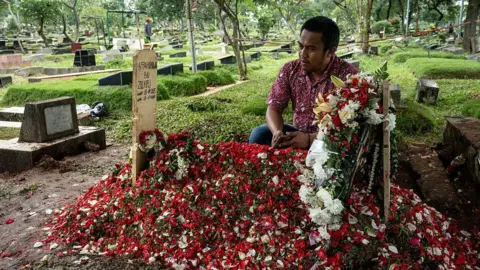In a world increasingly intertwined with technology, the new papacy of Pope Leo XIV is addressing the urgent issue of artificial intelligence (AI) and its potential ramifications on society. In his first speeches, he voiced a need for responsible stewardship over AI, emphasizing its significant implications for human dignity, justice, and labor.
The congregation at St. Matthias Schöneberg Church in Berlin represents a microcosm of this growing concern. With 12,000 members from over 100 countries, many parishioners worry about the misinformation children encounter online and the risk of AI-related job obsolescence, particularly for interpreters. Their anxieties resonate with the Pope's intentions, as he has committed to engaging the Church in discussions about the risks posed by emerging technologies.
In his inaugural address to the College of Cardinals, Pope Leo set the stage for the Church's engagement in these contemporary issues, stressing the need to harness AI responsibly for the collective good. Furthermore, during his initial press conference, he acknowledged the "immense potential" of AI while cautioning against its misuse.
Paolo Benanti, a Franciscan scholar serving as the Vatican’s chief advisor on AI ethics, expressed his surprise and appreciation for the Pope's proactive stance. Reflecting on his experience studying this field 15 years ago, he noted the evolution of the Church's focus, remarking that such topics are now front and center under Pope Leo's leadership.
Pope Leo XIV had contemplated these challenges even before his papacy, as evidenced by his engagements with Vatican departments regarding digital life and AI. This forward-thinking approach indicates that the Vatican may play a pivotal role in guiding discussions about the ethical dimensions of artificial intelligence, emphasizing the importance of balancing innovation with responsibility in the face of rapid technological advancement.



















